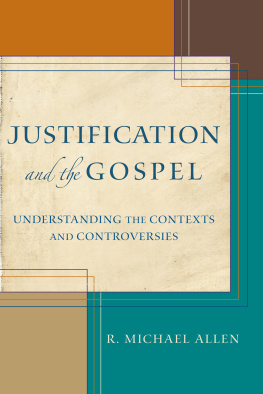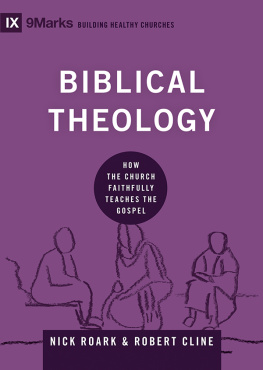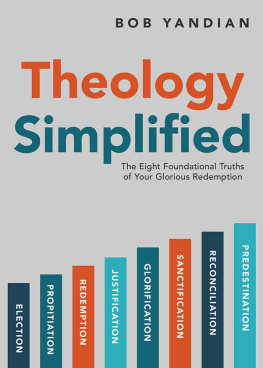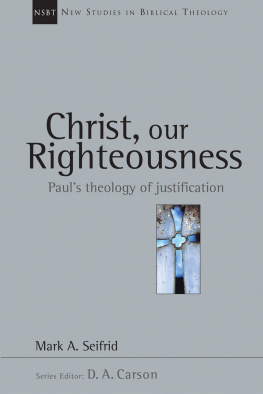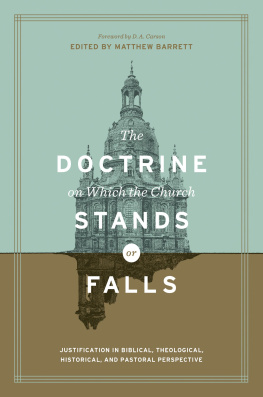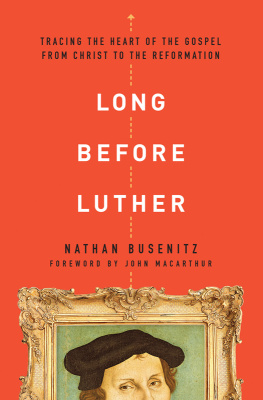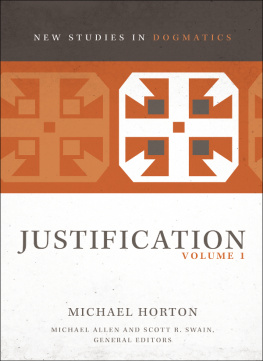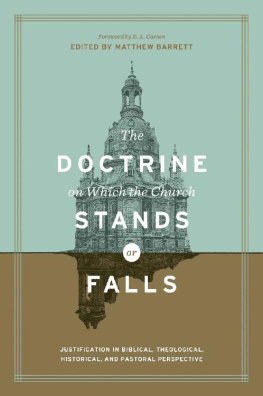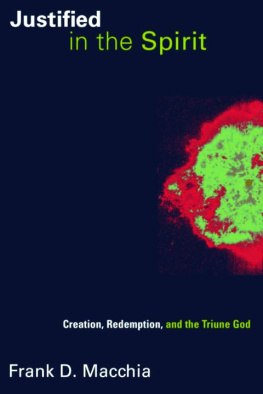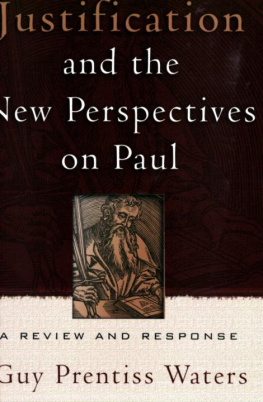
2013 by R. Michael Allen
Published by Baker Academic
a division of Baker Publishing Group
P.O. Box 6287, Grand Rapids, MI 49516-6287
www . bakeracademic . com
Ebook edition created 2013
All rights reserved. No part of this publication may be reproduced, stored in a retrieval system, or transmitted in any form or by any meansfor example, electronic, photocopy, recordingwithout the prior written permission of the publisher. The only exception is brief quotations in printed reviews.
Library of Congress Cataloging-in-Publication Data is on file at the Library of Congress, Washington, DC.
ISBN 978-1-4412-4300-3
Unless otherwise indicated, Scripture quotations are from The Holy Bible, English Standard Version (ESV), copyright 2001 by Crossway, a publishing ministry of Good News Publishers. Used by permission. All rights reserved. ESV Text Edition: 2007
Scripture quotations labeled NRSV are from the New Revised Standard Version of the Bible, copyright 1989, by the Division of Christian Education of the National Council of the Churches of Christ in the United States of America. Used by permission. All rights reserved.
With a keen eye and deft hand Allen plunges into the ever-changing discussion of the biblical teaching on Gods justification of sinners, practicing a truly intersubdisciplinary examination that draws upon exegetical, historical, and dogmatic studies, addressing contemporary cultures and the life of the church with his insights. Agree or disagree, readers will be challenged to address forensic and participatory views of justification from perspectives gathered from Allens own Reformed tradition as well as from Luther and a variety of historic and contemporary Lutheran and Roman Catholic theologians. This volume will fire fresh exchanges regarding the nature of the gospel and the definition and application of Gods justifying action in Christ Jesus.
Robert Kolb, Concordia Seminary, St. Louis
In this extremely learned book, Michael Allen performs a dual service for Christian theology. First, by applying the lens of dogmatic analysis to a topic largely dominated by exegetical and ecumenical concern in recent decades, he exposes the shortsightedness of many contemporary approaches and debates and enables us to perceive a more capacious domain of possibilities. Second, by means of compelling argument and well-chosen examples, he demonstrates that historic Protestant teaching regarding Gods gracious justification of the ungodly retains its status as a hinge upon which many doctrines turn and a wellspring of theological and spiritual vitality.
Scott Swain, Reformed Theological Seminary
The new debate on justification is getting interesting! Allen provides a lucid scholarly guide to the controversies. He intervenes in the debate on behalf of divine immutability and forensic imputation. How little the classic fault lines still apply! How much less can the matter of justification be regarded as passe.
Paul R. Hinlicky, Roanoke College; Univerzita Komenskeho, Bratislava, Slovakia
For Wesley Hill
Contents
Cover
Title Page
Copyright Page
Endorsements
Dedication
Acknowledgments
Introduction
Part 1: Justification and the Gospel
1. The Place of Justification in Christian Theology
2. Justification and Participation, the Ground and Goal of the Gospel
Part 2: Christ for Us
3. From the Time He Took On the Form of a Servant: The Christs Pilgrimage of Faith
4. It Is No Longer I Who Live: Christs Faith and Christian Faith
Part 3: Christ in Us
5. Freedom for Love: Justification and Sanctification
6. The Churchs One Foundation: The Justification of the Ungodly Church
Notes
Subject Index
Scripture Index
Back Cover
Acknowledgments
S everal persons helped in the preparation of this volume. A number of friends were willing to read through material and offer comments: Todd Billings, Scott Swain, John Webster, Wesley Hill, and Jonathan Linebaugh. The book is surely improved by the wisdom of each of these friends. At Baker Academic, I am grateful for the help offered by Bob Hosack as well as B. J. Heyboer, Bryan Dyer, Jeremy Wells, and Trinity Graeser.
My family encouraged me throughout the writing process. Emily and Jackson have celebrated the project and never begrudged it. I am grateful. My institutional family at Knox Theological Seminary has also been supportive during the time needed to produce this volume. I am thankful especially to Luder Whitlock and Warren Gage for protecting my schedule and ensuring that institutional responsibilities did not crowd out time for research and writing. I should also mention that Jonathan Linebaugh has endured more random interruptions regarding the doctrine of justification than any academic should expect from the person in the office next door. That he is still talking to me, and that he has proven so helpful throughout the writing process, is a great gift.
A slightly edited version of chapter 3 appears in the International Journal of Systematic Theology , and a version of chapter 4 appears in the Journal of Reformed Theology .
I dedicate the book to Wesley Hill. We have been friends for more than a decade now. That friendship has involved a theological journey that began with serious thinking about the doctrine of justification and has led both of us together to a commitment to being catholic and Reformational theologians for the church. Over the years and across the continents, he has remained a steadfast and joyful friend even as he has become a remarkably capable theologian. The book surely would not exist without our shared journey.
Part 1
Justification and the Gospel
Part 2
Christ for Us
Part 3
Christ in Us
Notes
Introduction
. Dawn DeVries, Justification, in The Oxford Handbook of Systematic Theology , ed. John Webster, Kathryn Tanner, and Iain Torrance (New York: Oxford University Press, 2007), 197211.
. John Webster, Biblical Reasoning, Anglican Theological Journal 90, no. 4 (2009): 750.
. Ibid.
Chapter 1. The Place of Justification in Christian Theology
. Thomas Aquinas, Summa Theologiae , trans. Thomas Gilby (London: Blackfriars, 1963), 1a.1.7, reply.
. Ibid., obj. 2.
. Ibid., ad 2.
. Ibid., 1a.32.1, ad 3.
. On the importance of an operative doctrine of God for understanding creation, see John Webster, Trinity and Creation, International Journal of Systematic Theology 12, no. 1 (2010): 419. On the link between an operative doctrine of God and the gospel, see Webster, It Was the Will of the Lord to Bruise Him: Soteriology and the Doctrine of God, in God without Measure : Essays in Christian Doctrine (London: T&T Clark, forthcoming). On the doctrine of aseity, strictly speaking, see Webster, Life in and of Himself: On Gods Aseity, in God without Measure .
. This movement behind the divine economy is not a speculation upon the hidden God, precisely inasmuch as it is not only impelled but is also guided by Holy Scripture, itself a gift in the divine economy.
. In chap. 3 I will argue that the biblical portrayal of the Christs faith, exercised by the incarnate Son during his particular sojourn upon the earth, flowed out of his eternal relationship to his heavenly Father (most poignantly described as his eternal generation). Scholastic theologians would say here that the external works of God are patterned after and express the inner works of Godthis maxim simply serves to unpack the claim that Jesus really is the image of the invisible God (Col. 1:15) and that, though no one has ever seen God, Jesus really has made him known (John 1:18).

